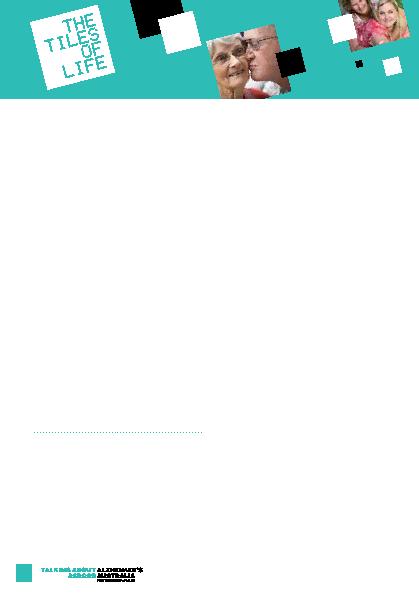
are there to support them.
interdisciplinary team to develop an integrated
communications solution to encourage and
educate GPs to detect dementia as early as
possible. Our challenge was to inspire GPs
to believe they will make a difference to a
patient's future.
media campaign that included print & online
advertising, a micro-website, and Direct Mail
to highlight current evidence and convince
them of the important benefits of diagnosing
dementia early. Benefits include starting
medication early to which may improve
cognition, slow down the progression of the
disease and help to maintain quality of life
longer and to plan ahead whilst they still have
the capacity to make important decisions.
activities, report outcomes and provide
implications for future work with GPs based on
campaign learning.
reported by Alzheimer's Australia "Timely
diagnosis of dementia: Can we do better?".
13 Sept 2012
Project Officer Alzheimer's Australia NSW
to maintain citizenship?
may experience a minefield of barriers
that affect their opportunities to the active
engagement in community and family life.
supports men with early stage dementia and
male carers to re-engage with and connect to
community, within a Men's shed environment.
The success of this type of model of support
for men with dementia is that, within the
shed context, the program identifies shed
champions and shed mates, who value
citizenship.
have chosen to participate as part of the first
ever pilot program in Australia looking at
citizenship and Dementia within the men's
shed environment. This paper shares the many
lessons learnt as part of the implementation
of this pilot, and explores how and why the
project team has made continuous adaptation
to recruitment training and education
approaches, and the importance of program
logic and flexibility to guide this process.
to evaluate the project and initial evaluation
findings will be presented. All men participating
in the project have used guided photo journals.
The final evaluation report is due is September
2013 and will provide a much greater insight
into how we can enable people with dementia
to maintain citizenship.
main point of contact for the project and
liaise with the project officer
dementia or male carers of person with
dementia